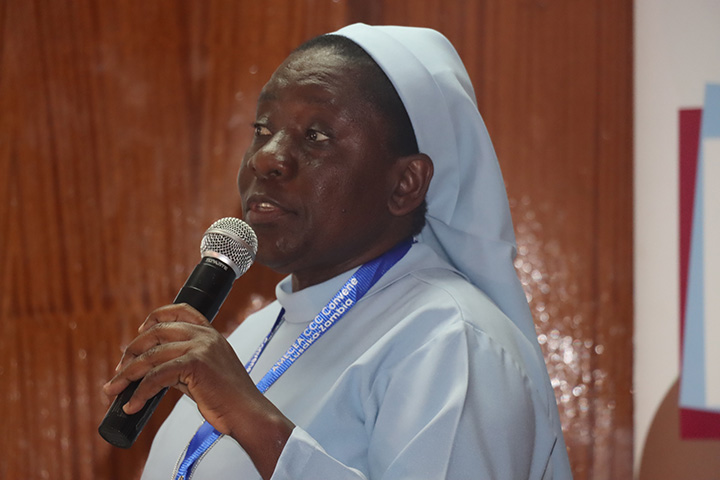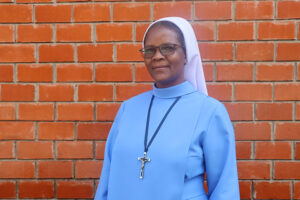AMECEA/CCC: Catholic Care for Children Appreciate the Achievements so Far on Reintegration of Children

Sr. Euphresia
Henriette Anne FSSA
At the beginning of a two-day regional conference on Catholic Care for Children (CCC) held in Lusaka, Zambia, members of the CCC-Zambia and CCC-Uganda shared their achievement so far on reintegration of children from Institutions to families.
While sharing experiences on their journey towards response to child care reforms, Sr. Euphrasia Masika, the director of Catholic Care for Children in Uganda (CCCU) shared that the Association of Religious in Uganda (ARU) has managed to reintegrate 1,443 children into their families and community-based care since the inception of CCCU in 2016.
The member of the congregation of Daughter of St. Therese of the Child Jesus pointed out that “the emerging legal framework for taking care of children posed significant implications for those in the child protection sector including the Catholic Sisters and Brothers,” adding that “charisms of the religious congregations as a foundation to care for vulnerable children need child safeguarding policy to guide their ministry”.
In her presentation, she stressed that the “transition to family or community-based care requires a multisectoral approach with input from different partners/stakeholders”, through a gradual process, having adequate resources and done in the best interest of the child.
For continued support of the reintegration of children under security and economic stability, child survival and health, education and development, and childcare and protection, Sr. Masika said that CCCU has collaborated with other partners.
She called upon the clergy to collaborate with CCCU in matters of the spiritual welfare of the children and staff at children’s homes, sensitization on the importance of family care, and in approving and supporting fundraising drives of the Child Care Institutions.
She further added that there is need to empower or revive Small Christian Communities and the Women’s Guild (CWA) to monitor reintegrated children and strengthen or revive family desks that sensitize families on responsible parenting and the penalty involved for non-compliance.
Speaking about the same achievements on reintegration of children in Zambia, the CCC-Z coordinator Sr. Catherine Mpolokoso opined that from November 2015 to April 2016 the project embarked on a journey to find out factors contributing to children’s placement in Children in Affiliated Residential Childcare Facilities (CARCFs) and realized that “poverty” is the primary reason for the placement among other reasons.

Due to poverty, Sr. Mpolokoso said, families place their children in institutions due to the inability to pay school fees, care for household members, or attend to children with disabilities and mental health.
To bring a change, CCC-Z recommends the need to prevent abuse, rekindle cultural practices, shift to family-based care, prepare children for independent living, and create a social support structure for vulnerable children, showing that families are the cornerstone of nurturing children.
To improve the well-being of vulnerable children in Zambia and to promote family-based care, CCCZ focused on children returning to their families, equipping the Zambian Social Welfare Department and facilities for the transformative journey and influencing system level through networking and advocacy.
Sr. Mpolokoso added, that training caregivers, forming policies, and the process of reintegration have enabled CCCZ to “reintegrate 70 children where 47 children were reunified and the cases were successfully closed while 23 cases were reintegrated but their cases are not yet closed as the children are still being monitored.
Even though the concern for Care reforms is key in the country, the project face numerous challenges, including lack of information from other institutions, parental irresponsibility, high level of poverty which prevents parents from receiving back their children, lack of funding from the government and children with disabilities face numerous difficulties since no one want to take them.
Despite the challenges, Sr. Catherine stressed “family is the best place for a child to grow”.


